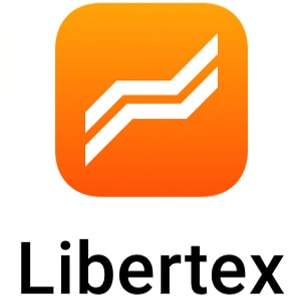Is XM better than Libertex? This is a hard question to answer, because some traders will need what XM has to offer, and some will need what Libertex offers. For example, XM offers an excellent research and education portal, making it a great choice for new and inexperienced traders. Libertex, however, has its own advantages, including low fees and a choice of trading platforms. When you compare XM vs Libertex, both brokers are fully regulated by CySEC and are considered reputable firms. When you’re looking for the best broker for you, there are a number of factors to take into account. Have a read below.

Risk Warning: CFDs are complex instruments and come with a high risk of losing money rapidly due to leverage. 74.89% of retail investor accounts lose money when trading CFDs with this provider. You should consider whether you understand how CFDs work and whether you can afford to take the high risk of losing your money.



Trading CFDs involves substantial risk of loss and may not be suitable for all investors. Trading such high-risk financial contracts may result in the loss of all the client's invested capital. 77.7% of retail investors lose money when trading CFDs with this provider. You should consider whether you understand how CFDs work and can afford to take the high risk of losing your money.


This is not as straightforward a question as it might seem, as different brokers have different ways of calculating costs, and this may well vary depending on the account type you hold and the instruments you are trading. Libertex, however, is known for being a low-cost trader, with very competitive spreads. The broker only offers one main account type, meaning that the costs may be less confusing.
XM has a choice of account types offering different trading conditions. If you are considering this broker, you’ll need to look at each type of account, the features it offers, and the trading costs to see which will suit you best.
With the XM Zero account, spreads can go as low as 0 pips, but you will pay a standard commission of £3.50 per $100,000 traded. Libertex offers its underlying assets straight up with tight spreads, along with a percentage that will vary according to the instrument being traded. This means that spreads can sometimes be as low as 0.1 pips at Libertex.
As both brokers are based in Europe, you will find that whether you trade with Libertex or XM, you will be offered leverage of a maximum of 30:1, which is as high as is permitted by CySEC and other European regulators.
You will find it quick and easy to open an account with either Libertex or XM. Libertex does not have a lot of different account types or levels. You will simply open a classic account for CFDs or a classic account for stocks. It usually takes just a few minutes to set up your account. At XM, your initial registration will also take just minutes, but your account may take up to one business day to set up fully. You can set up a Standard, Micro, Zero or Ultra Low account.
You will find that both Libertex and XM offer a risk-free demo account so that you can get a feel for the platform before opening a live account.
Both brokers offer MT4 and MT5 trading. Libertex also offers an in-house online trading platform and mobile app, though the broker does not offer a copy trading platform. XM does have a copy trading platform, XM Mirror Trader, so this broker is a better choice if you are currently copy trading, or planning to in the future.
XM is a highly accessible platform, allowing traders to open an account with a deposit of as low as $5. Libertex requires a minimum deposit of at least €100. While this may make XM a good choice for complete beginners and hobby traders, most traders will be depositing more than €100, so very few will rule out Libertex based on this.
XM provides trading in more than 55 currency pairs and offers a total of more than 1,000 instruments across multiple asset classes, including forex, CFDs, stocks, commodities and indices, but does not offer cryptocurrencies. Libertex has around 250 instruments, including CFDs, indices, commodities, metals, ETFs, forex and even cryptocurrencies. If you are interested in trading cryptocurrencies, you will no doubt be aware that many forex brokers do not offer them, so crypto traders will most likely be attracted to Libertex for this reason.
Both Libertex and XM are respectable brokers with good reputations, and both are overseen by reliable regulators. Newer traders might be attracted to the excellent training and education at XM, as well as the opportunities for copy trading, and the low barrier to entry presented by that very low deposit requirement. Libertex offers fewer instruments for multi-asset traders, but it does have the advantage of offering some cryptocurrencies alongside its forex offerings. As always, take a close look at the aspects of the broker that are important to you, and consider trying a demo account to see if you like the platform or not.